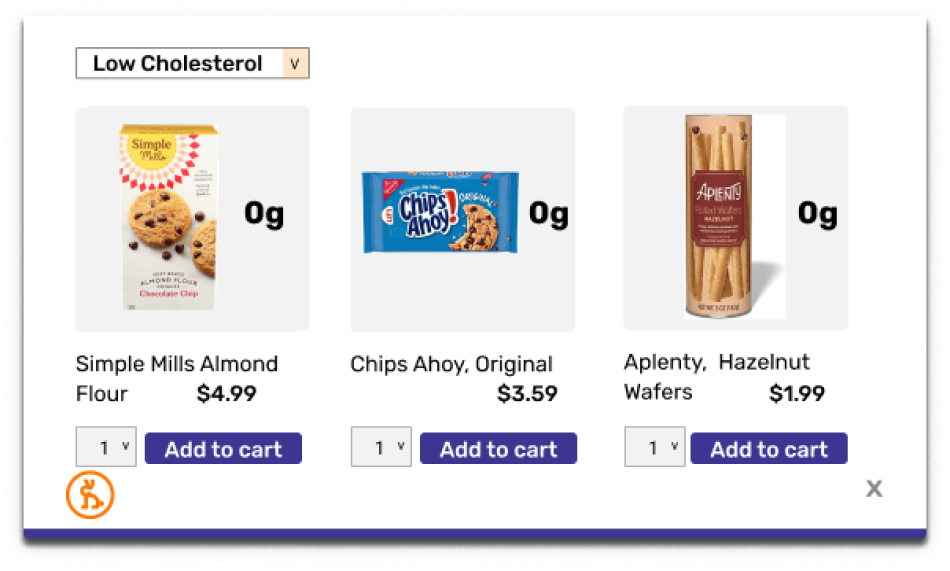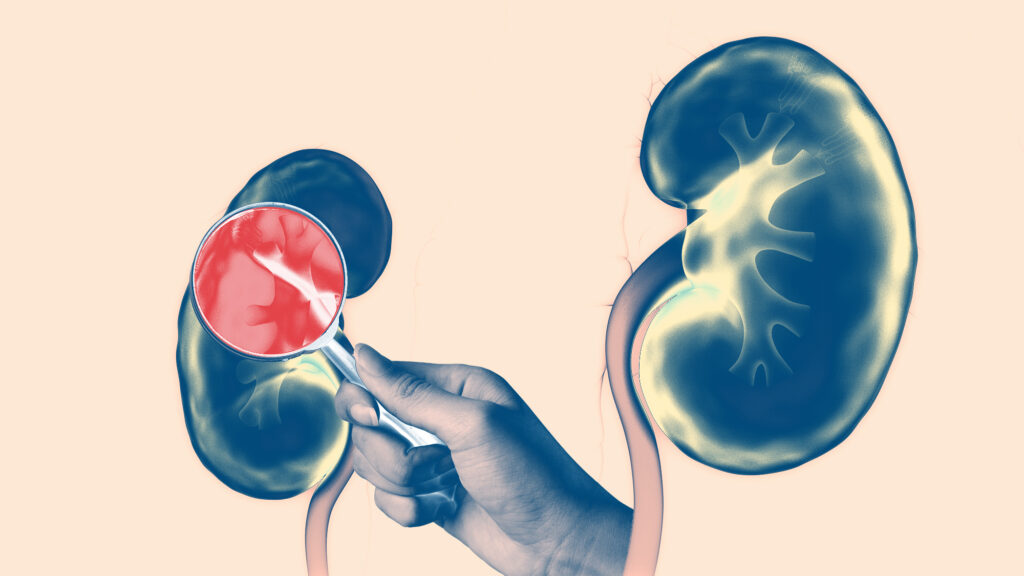What is kidney disease and why is it important?
Kidney disease, when the kidneys lose functionality, affects almost 40 million Americans. As kidney disease progresses, the kidneys could stop working entirely, requiring dialysis and transplant. The main causes of kidney disease are type 2 diabetes and hypertension, but those with heart disease or a family history of CKD are also at high risk.
It should also be noted that kidney disease is NOT the same as developing kidney stones. Kidney stones are hard mineral deposits that can develop in the kidneys are can cause a lot of pain, particularly when passing a kidney stone out of the body through urine. While kidney stones can be a recurring and painful issue, and could happen alongside CKD, they are not related medical issues – they just both occur in the kidneys!
The kidneys are responsible for filtering extra water and waste from your blood to make urine, keeping important electrolytes and minerals (such as calcium, sodium, phosphorus and potassium) balanced, producing some hormones that regulate blood pressure and promote bone health and growth, and making red blood cells. When your kidneys stop working as efficiently or fail completely, there are serious full-body consequences. However, even though CKD is often progressive (meaning it gets worse over time) and is irreversible, CKD can be managed through diet and lifestyle changes to slow or even halt that progression.
How can I tell if I have CKD?
Chronic kidney disease is often “silent” in the early stages, meaning that it has no obvious outward symptoms. In fact, it’s believed that only about 10% of people with CKD know it because obvious symptoms can take so long to manifest. If you have type 2 diabetes or hypertension, talking to your doctor at your yearly physical about your kidney function is an important step to ensuring your ongoing kidney health.
Will I get better if I have CKD?
Although kidney disease is not curable, it can be managed with dietary changes, lifestyle modifications and adherence to medications as prescribed by your healthcare provider.
Since many people who end up with a CKD diagnosis often also carry diagnoses of hypertension and/or type 2 diabetes, dietary changes should focus on lowering sodium and sugar in the diet. Working with a registered dietitian is key for success as the interplay of these three diagnoses can sometimes become complicated. As kidney disease advances, and if the kidneys fail and you need to undergo dialysis, diet monitoring with a dietitian becomes increasingly important since other nutrients such as potassium, phosphorus and calcium need to be closely monitored week-by-week as does overall fluid intake.
Diet and Chronic Kidney Disease
As mentioned previously, in the early stages of CKD, dietary changes often focus on managing blood glucose and blood pressure. Focusing on creating meal time plates that are loaded with vegetables, whole grains, small portions of lean proteins, low-fat dairy products and fruits is the place to start. When choosing convenience foods, prepared foods or snack foods, shopping for lower added sugar and lower sodium options will be important. Follow your healthcare provider’s and registered dietitian’s advice for how to keep your blood sugar in check with lower added sugar products. To reduce sodium (salt) in the diet, work on switching to products that have less than 140mg of sodium per serving listed on their nutrition facts labels. Using non-salt based seasonings instead of salt at mealtimes, such as different herbs, spices or citrus juices, can also help reduce the amount of sodium in your diet – but be careful here since many non-salt based seasoning blends can include high levels of potassium, which could be problematic for your kidneys as well. Running these by your registered dietitian is recommended as is using a shopping app like Vitalcart, which can help you and your dietitian make better choices when you’re shopping by quickly identifying those lower sugar and lower sodium products.
The bottom line is that CKD can be a complicated and sometimes scary medical diagnosis, but with the right supports in place, you can make the changes in your life that are necessary to slow the progression of this challenging disease.
https://www.niddk.nih.gov/health-information/kidney-disease/chronic-kidney-disease-ckd#:~:text=Chronic%20kidney%20disease%20(CKD)%20means,family%20history%20of%20kidney%20failure.
https://www.kidney.org/news/ekidney/august14/10_Signs_You_May_Have_Kidney_Disease

People ask Vitalcart for grocery tips each day. We get the best finds for each health goal and share them live with you.

The shopping assistant that makes nutrition planning easy.

